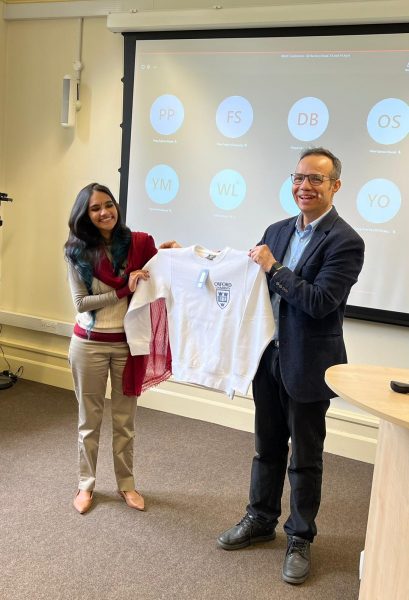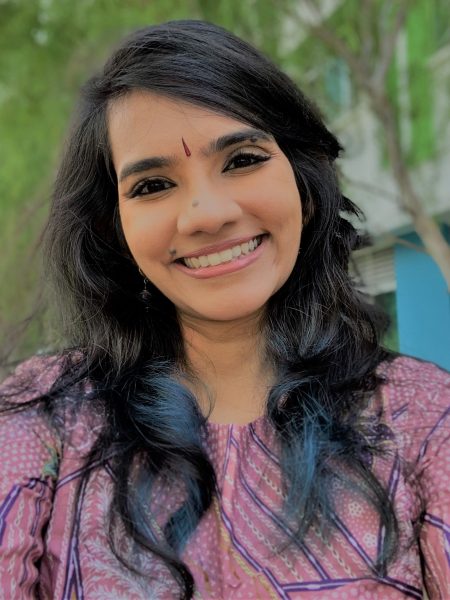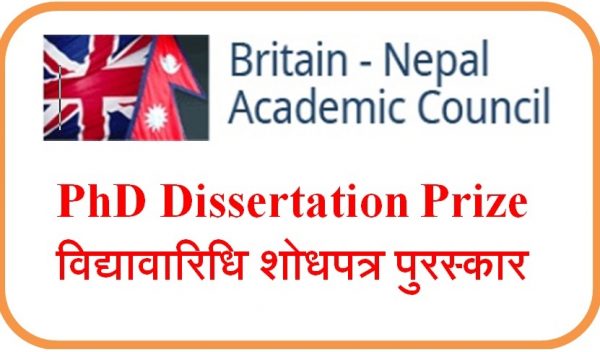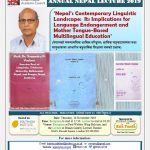News Britain - Nepal Academic Council › News
Latest News
FINAL Conference Programme: BNAC Nepal Study Days, 24-25 April 2025FINAL Conference Programme: BNAC Nepal Study Days, 24-25 April 2025 The final conference programme o...
Read MoreHema Kiruppalini and Mikkel Vindegg awarded BNAC PhD Dissertation Prize 2022
April 14, 2022Press note:
Hema Kiruppalini and Mikkel Vindegg awarded BNAC PhD Dissertation Prize 2022
14-04-2022. Oxford.
The Britain–Nepal Academic Council (BNAC)’s PhD Dissertation Prize 2022 is jointly awarded to Hema Kiruppalini, of National University of Singapore, and Dr Mikkel Vindegg, of the University of Oslo, Norway. Hema received the prize for her PhD dissertation chapter entitled ‘They too served: Nepali women and children of the Gurkha regiment in Asia (1947-1971)’ and Mikkel for his paper, based on his PhD dissertation, entitled ‘Current demands in the Nepali electricity sector: For a social reproduction theory of infrastructure’ respectively. Amrita Limbu of Western Sydney University, Australia was declared the runner up for her PhD work on Nepali students’ migration to Australia.
Declaring Hema’s work as a co-winner of the prize, a panel of judges from the BNAC comprising Dr Jeevan R. Sharma, Prof Michael Hutt and Dr Stefanie Lotter Prize commented, “This is a rich ethnographic depiction of the transnational lives of British Gurkha families in the mid 20th century, with a particular focus on the lives of women and children, reconstructed through the lens of oral history and drawing on extensive archival material.” Similarly, awarding Mikkel Vindegg’s work a co-winning place, they concluded: “Mikkel Vindegg’s study convincingly portrays the complexity of invisible repair work. A quite brilliant description and analysis”. (Please see below for the full comments by the panel on the winning and runner-up papers.
There were altogether 15 submissions for the award. PhD students and recent graduates (within two years of graduation) from the social sciences or the humanities or associated fields, registered in universities anywhere in the world and conducting research about Nepal or the Nepali cultural world, were eligible to take part in the competition by submitting a chapter or paper from their PhD research.
The prize, worth £250 to each winner, was awarded at a function during the 19th Nepal Study Days in Oxford University on 14 April 2022.
Awarding the prize amidst a function during the Nepal Study Days in Oxford, the BNAC Chair, Dr Krishna Adhikari, said: “The dissertation prize was set up in 2017 to encourage and reward excellent research chapters or papers by a PhD student or recent PhD graduate. Since 2020, we have increased the number of prizes and from 2021 on we have also expanded the regional scope covering all the countries in the world. Since we have good feedback as well as an encouraging level of participation, we will continue to offer the prize in the coming years. We welcome feedback and suggestions. Since we allow candidates to submit their entries up to two years after their graduation, some unsuccessful applicants may qualify to reapply next year.”
Hema Kiruppalini (Winner)
This is a rich ethnographic depiction of the transnational lives of British Gurkha families in the mid 20th century, with a particular focus on the lives of women and children, reconstructed through the lens of oral history and drawing on extensive archival material. It is informed by multi-sited research in Nepal, UK, Malaysia, and Singapore.

Hema Kiruppalini |
Departing from the male-centered narrative of military migrants, the chapter describes the efforts of the British Army to domesticate and prescribe the ideology of a ‘modernising discipline’ to Gurkha family life. With boy scouts, brownies, handicraft lessons, health, and hygiene checks the British military transgressed the boundaries between education and indoctrination, work and voluntary contribution, and the private and public spheres. Hema Kiruppalini’s chapter highlights beautifully with a wealth of sources how accompanying spouses were expected to go beyond housework to contribute as teachers, nurses, among other duties. She shows how ‘line-boys/girls’ or, put another way, army children (bhanjas/bhanjis) who migrated alongside their fathers were also prepared for a future as soldiers and nurses. Hema Kiruppalini’s work excels in its detailed description of domesticating procedures as well as the multi-faceted depiction of the family lives of military migrants. This is a fascinating chapter that we hope to see published soon.
Mikkel Vindegg (Winner)

Dr Mikkel Vindegg |
This ethnographic study follows three electricians on their work rounds to repair the electrical lines in Lubhu in the Kathmandu Valley. The beauty of the chapter lies in the theoretical and analytical clarity with which Mikkel Vindegg unpicks the ways in which prestigeless infrastructural repair work does no more than merely restore the expected status quo. That this work is ‘invisible’ and ‘unnoticed’ contributes to a lack of recognition, calling for a rethinking of essential maintenance and repair work. The three electricians Mikkel Vindegg follows around Lubu, work hard to professionally repair and certify their work. Facing dangers and negotiating with customers while finding professional solutions for complex problems, the highly skilled electricians fall into a gap between vocational and administrative work categories: their profession lies somewhere between a job, a career, and a calling. As they are required to patch up a frayed system at minimal cost, the skill set and knowledge that enables them to succeed in their creative tasks also induce a dissatisfaction with their own work. Mikkel Vindegg’s study convincingly portrays the complexity of invisible repair work. A quite brilliant description and analysis.
Amrita Limbu (Runner Up)
 Amrita Limbu Amrita Limbu |
Australia today is the destination for half of all of the Nepali students who study abroad. However, Nepali migration to Australia remains a surprisingly understudied field. Amrita Limbu’s dissertation fills this gap with an excellent study of the intergenerational aspirations of transnational migrants. Her study contrasts the perspectives of ageing Nepali couples with those of their migrating children by bringing emotions and concerns about care and support to the forefront of the inquiry. Amidst the short-term migration for educational purposes looms the long-term perspective of caring for a family across continents and the fear of losing familial networks. With grandchildren growing up at a distance and grandparents ageing in a different health care system, emotional ties conflict with aspirations and a rhetoric of continuity is employed. Whether this results in new forms of long-distance relationship or in the return or out-migration of further family members remains to be seen. Amrita Limbu’s pioneering study answers many questions, and raises many more for further studies.



